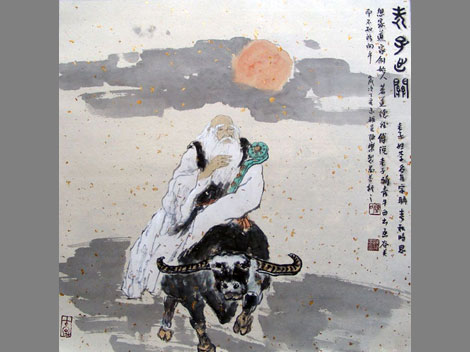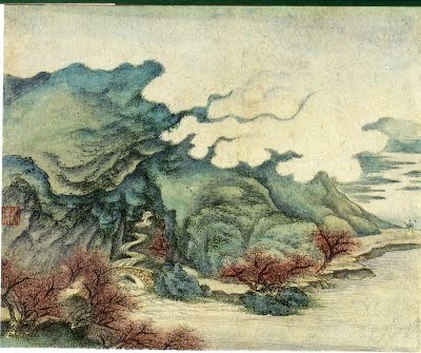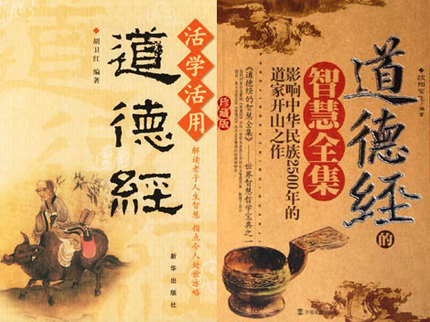Daoism
By: Helene Fertal
"So long as I love quietude, the people will of themselves go straight.
So long as I act only by inactivity, the people will of themselves become prosperous"
~Tao Te Ching
History
|
Daoism, is a Chinese religion often associated with the Daode jingo (Tao Te Ching), a philosophical and political text written by Laozi (Lao Tzu) sometime in the 3rd or 4th centuries B.C.E. The Daode jing focuses on dao as a "way" or "path" — that is, the appropriate way to behave and to lead others — but the Daode jing also refers to Tao as something that existed "before Heaven and Earth," a primal and chaotic matrix from which all forms emerged. Taoism did not exist as an organized religion until the Way of the Celestial Masters sect was founded in 142 C.E. by Zhang Daoling, who based the sect on spiritual communications from the deified Laozi
|
Practices
|
Daoists practice meditation, breathing exercises, and enjoy landscape painting. These usually depict tiny human figures next to large mountains and valleys to represent the power of nature. Other practices include magic fortune telling and the search for immortality.
|
Beliefs

Yin and yang symbol. depiction of someone meditating.
Daoists believed in the Dao. Dao is “the way of nature”, it does nothing but accomplishes everything. Daoists believe that education, striving for improvement, and strong government generally make things worse. They believe one must withdraw from the world of political and social activism. These people strive to be like water, calm and genital yet powerful and destructive. Daoists also believe in the concept of yin and yang. The literally meaning of this is "shadow and light." Yin and Yang is used to describe how polar opposites or seemingly contrary forces are interconnected and interdependent in the natural world. This religion shaped the culture of ordinary people.
Religious Texts
|
Important Taoist texts include the Tao-te Ching, the Chuang-tzu and several other less famous works of Daoist philosophy
The Tao-te Ching also known as Dao De Jing is the central text of both philosophical and religious Taoism. In English, its name is usually translated as Classic of the Way of Power. It is also known as Lao Tzu's Five Thousand Words, as it is attributed to the sage Lao Tzu and is 5,000 Chinese characters in length. The Chuang-tzu is second in importance in Taoism only to the Tao-te Ching and is regarded as more comprehensive than the Tao-te Ching. The Chuang-tzu has also been influential in the development of Chinese Buddhism and on Chinese landscape painting and poetry. |
Women In Daoism
|
A positive attitude toward women, or feminine qualities, has been the characteristic of Taoism from the beginning. Taode jing, a daoists text, it refers to women in a positive light. In Chapter 61 it says : "The Feminine always conquers the Masculine by her quietness, by lowering herself through her quietness./ Hence, if a great country can lower itself before a small country, it will win over the small country . . . "
The Taode jing was almost certainly written by and for men. Its solution to these conflicts was to encourage men to adopt a non-aggressive, or feminine attitude In the Zhuangzi is an account of Liezi's disagreement with his teacher over the power of a shaman with whom Liezi had been initially quite impressed. When Liezi realized how little he knew he went home and took the feminine role in his own household, cooking and doing other chores usually done by his wife. This shows how this religion not only treats women equally. But idolizes the way that women were, their job in the house hold and their way of thinking. |
Work Cited
"A Short History of Daoism." A Short History of / Introduction to Daoism. N.p., n.d. Web.
"Taoist Sacred Texts." Religious Texts. Dreamweaver, n.d. Web. 9 Nov. 2012.
"Taoist Sacred Texts." Religious Texts. Dreamweaver, n.d. Web. 9 Nov. 2012.




